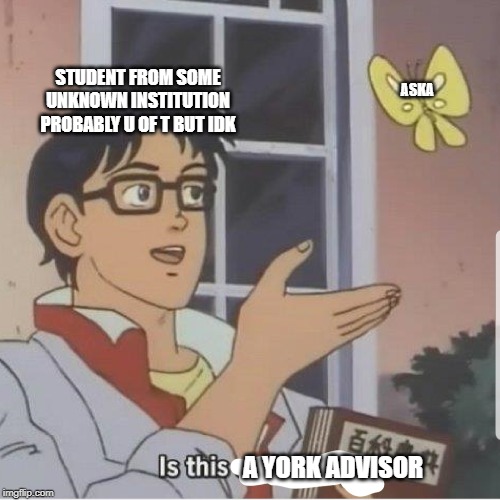Hi, so I started my degree in 2016 and I really struggled the first two years and ended up on academic probation, and then an academic suspension. I’m back now, and I’m predicting I’ll finish in 2022 or 2023. So that’s 6-7 years I’m putting down on my resume I’ve been in school and it’s making me beyond depressed and embarrassed.
I want to purse a career in teaching. Possibly go to York for their consecutive education program, but I don’t know how they’ll look at my last 2 years. Especially if I decide to take an additional year, and take more than 20 credits. I can’t find the info on how York will look at my extra credits or even OISE/ grad schools in general?
I emailed York but they didn’t say much 🙁
I just want to know how extra credits and lower course loads (still full time, 3.0, but not 5.0) look to them.
——————————————
hey there,
there’s no shame at all in being in school for that long. i know there’s a certain pressure to get your degree done in the standard four years, but it’s becoming more and more common for students to take their time and stay in school longer. university is tough, man. and everyone’s life has different timing. i actually think your drive to bounce back from those obstacles you hit and return to school is pretty dang admirable, for what it’s worth.

i can understand, though, your concern over how your academic record will affect your future educational prospects. unfortunately, this is about as substantial as answer as i’m able to give you:
as in, it would be really really difficult for me to give you reliable info on how york would assess your academic record. only the people at york would know that. you can try the lovely people over at the york u life tumblr, which functions relatively similarly to aska, or you might just need to continue pestering the admissions office. it frustrates me that they didn’t provide you with much, because i refer people to grad schools admissions so often hoping the info those offices have will be better than what i have to offer.
tl:dr unfortunately, i have to stick to my standard grad school admissions answer and tell you to contact the grad schools themselves. this feels like too risky of a thing for me to guess at. even with OISE running out of u of t, i don’t have much info to work with. i’m really sorry i can’t be more helpful 🙁
best of luck and be Boundless,
aska























